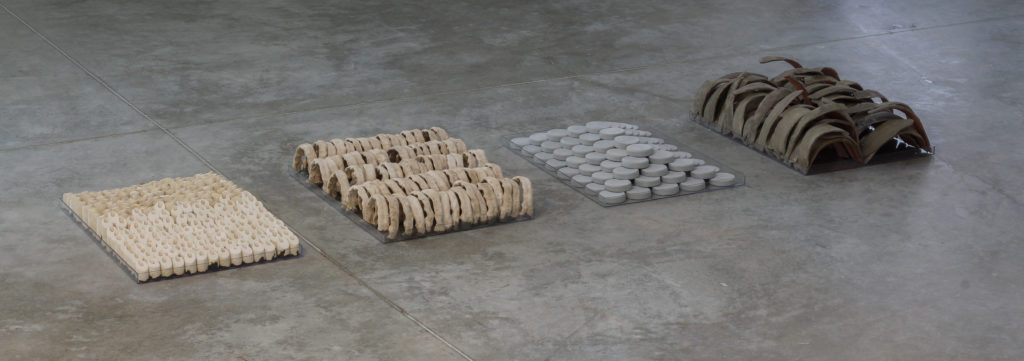
Revive | احیا Review by Rachel Ebio for Ruckus
The premise of a text – another person’s subjectivity – mediating my understanding, is familiar and loaded. It replicates the tensions I feel as an artist who is distant from my history, my ancestry, and my homelands. My family is from India: the Parsis. Fourteen hundred years ago we are from Iran. Our identity in India is wrapped in false and powerful narratives about ethnic purity. Our identity in subsequent diasporas – in my family’s case, in settler projects of the US and Canada – is more complex, and still tied to those stories. When I went to school I studied religion, trying to understand the stories and how I exist within and against them. The texts were written by colonizers, missionaries, and scholars and so my understanding was mediated through colonizers, missionaries, and scholars.
Surface Finds are discovered on the surface and removed from context, bound for a collector’s safe and then museum storage: surveyed, controlled, broken, captured, displaced, laundered, and studied. I snapped the prompt into its four fragments or parts: body, lid, handle, and spout. The body is the size of a melon, and I rolled a cantaloupe over slices of what the body could be. The lid is a detached circular flat object, and I modeled it after a lid in my kitchen. The handle is a flat ribbon, and I made the ribbon and buckled it back into itself. The spout is a cylinder that can be used to pour liquids, and I made it with a sharp angle. Dozens or hundreds of passes at each part lets me try to know the object without touching it or seeing it. The parts are arranged, lined up, and ready to be taken, in rectangular containers referencing archaeological sifters or buffet trays.